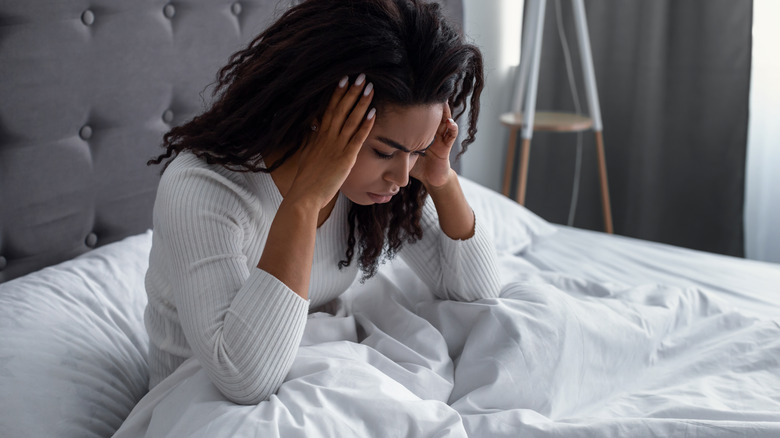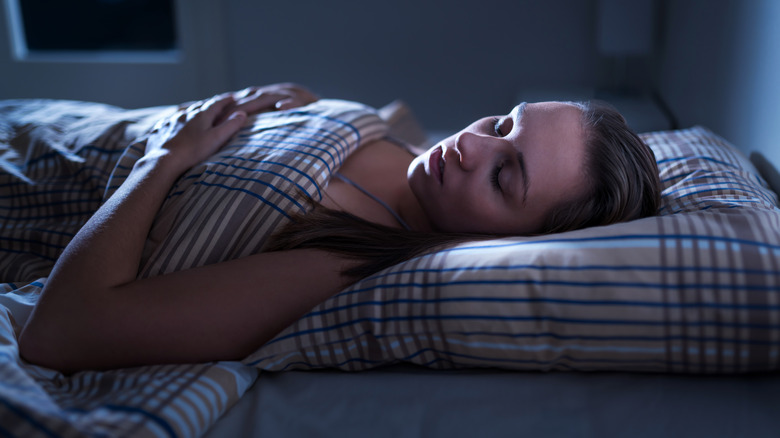What To Expect During Each Stage Of Your Migraine
Coping with migraines can be difficult, but knowing the stages and what to expect from them might make the process a little easier. According to the American Migraine Foundation (AMF), there are four stages to a migraine: prodrome, aura, headache, and postdrome.
The prodrome phase of migraine can begin anywhere between a few hours to a few days before the attack. Signs include irritability, fatigue, muscle stiffness (especially in the neck and shoulders), food cravings, moodiness, difficulty sleeping, and sensitivity to light and sound. If you recognize some of these signs as triggers for your migraines, you might be able to prevent a migraine attack by taking medications or practicing behavioral techniques.
Not everyone experiences an aura phase with migraine. That said, about one-third of those who get migraines have auras beforehand. An aura may result in blurry vision, vision loss, or seeing bright lights and geometric patterns in either one or both eyes. Most of the time, an aura is relatively short-lived, lasting around 5 to 60 minutes. Auras are a warning that a migraine is likely to occur. When experiencing an aura, you should lay down in a dark, quiet room to possibly stop the pain. You might also try over-the-counter pain relievers, or if your doctor has prescribed them, medications made especially for the treatment of migraine headaches (via WebMD).
The worst migraine phases
When the headache phase of a migraine occurs, you will have pain on either one or both sides of your head. The pain can be severe, and it can last several hours or several days. Sometimes, the pain is so extreme that performing everyday activities is difficult. Other common migraine symptoms during the headache phase are nausea, anxiety, and sensitivity to not only light and sounds, but smells, per the American Migraine Foundation (AMF). Pain relievers (either over-the-counter or prescribed) can work. But sometimes laying down in a dark, quiet room, and relaxing with a cold compress on your neck or head can help. Meditating, getting a massage, or drinking water or ginger tea could also ease pain (via Healthline).
In the postdrome phase of a migraine, the headache may have subsided, but there is often lingering fatigue, dizziness, and inability to concentrate. About 80% of people who have migraines experience postdrome. It's important to be cautious of certain triggers, because they can lead to another migraine. In fact, the best thing might be to relax, meditate, and avoid stressful situations until you feel well again.


